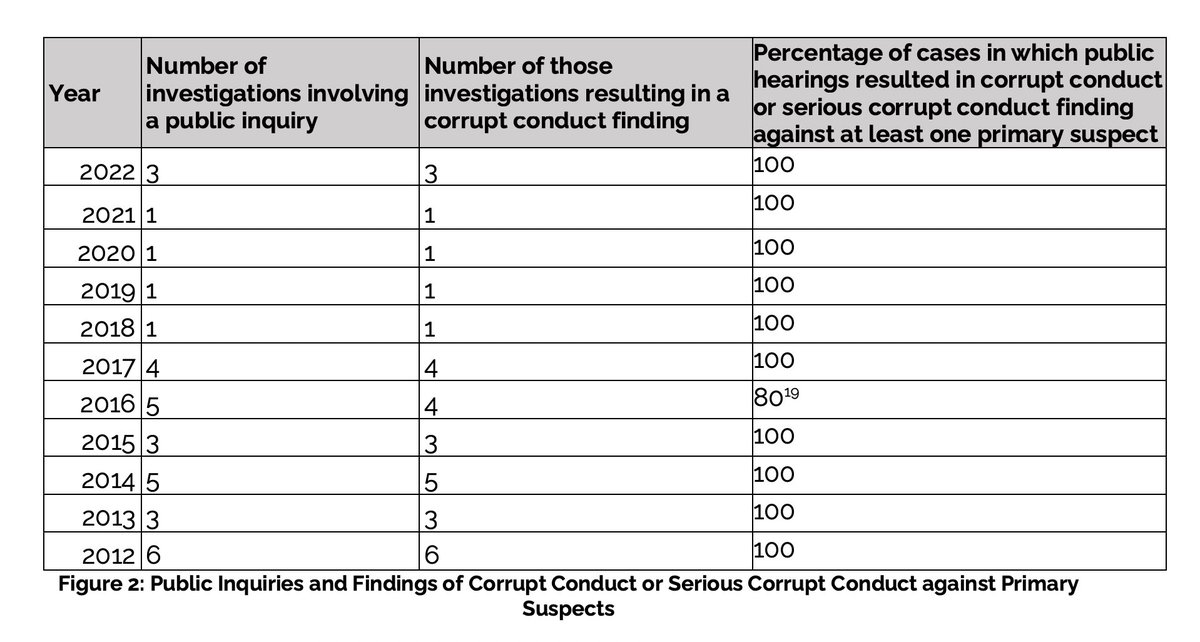
We've been working our way through the submissions to the Senate Committee re the NACC.
Leading constitutional law academic Prof Anne Twomey AO is a highlight.
A short thread:
#auspol #auslaw
Leading constitutional law academic Prof Anne Twomey AO is a highlight.
A short thread:
#auspol #auslaw
Prof Twomey is very strong on the importance of public hearings.
She makes the case around several key themes:
2/
She makes the case around several key themes:
2/
1. Trust in the system.
Our courts are open for a reason. If the public cannot see that the allegations have been fairly tested, then it is unlikely to respect and accept the outcome. Why should anti-corruption bodies be different?
3/
Our courts are open for a reason. If the public cannot see that the allegations have been fairly tested, then it is unlikely to respect and accept the outcome. Why should anti-corruption bodies be different?
3/
2. Vindication.
If someone is accused publically and the investigation is conducted with a report tabled privately, guilty or not guilty, the taint of corruption may remain.
4/
If someone is accused publically and the investigation is conducted with a report tabled privately, guilty or not guilty, the taint of corruption may remain.
4/
3. Setting standards.
Public hearings educate the community about the standard of conduct which is unacceptable and therefore reinforce public standards of behaviour.
5/
Public hearings educate the community about the standard of conduct which is unacceptable and therefore reinforce public standards of behaviour.
5/
4. Deterrence
People who might otherwise have behaved in a similar manner might think twice if they are concerned that they will be publicly called to account.
6/
People who might otherwise have behaved in a similar manner might think twice if they are concerned that they will be publicly called to account.
6/
5. Additional evidence
Public hearings alert the public to the case which increases the likelihood of others bringing forward relevent evidence.
7/
Public hearings alert the public to the case which increases the likelihood of others bringing forward relevent evidence.
7/
6. Consistency in standards.
Courts hear allegations openly, even though those allegations may damage a person’s reputation. So do royal commissions and other inquiries. MPs can use Parliamentary Privilege. Why not a well constructed Integrity Commission?
8/
Courts hear allegations openly, even though those allegations may damage a person’s reputation. So do royal commissions and other inquiries. MPs can use Parliamentary Privilege. Why not a well constructed Integrity Commission?
8/
Prof Twomey:
“…the NACC will be a body with great powers that can investigate matters in secret, hold secret hearings and issue secret reports containing secret findings. This will undermine public trust in the NACC and is inconsistent with the principle of transparency.”
9/
“…the NACC will be a body with great powers that can investigate matters in secret, hold secret hearings and issue secret reports containing secret findings. This will undermine public trust in the NACC and is inconsistent with the principle of transparency.”
9/
• • •
Missing some Tweet in this thread? You can try to
force a refresh










